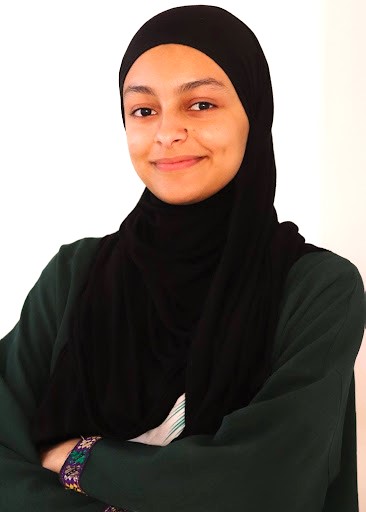-
What We Do
- WHERE WE WORK
-
About Us
 Welcome Message from Carol Jenkins
Welcome Message from Carol JenkinsFor more than 90 years, World Learning has equipped individuals and institutions to address the world’s most pressing problems. We believe that, working together with our partners, we can change this world for the better.
On my travels, I’ve had the opportunity to meet with many of those who have joined us in this mission. In Baghdad, we’ve trained more than 2,300 Iraqi youth who are already giving back at home. In London, our partners in the TAAP Initiative strongly believe that we are all responsible to practice inclusion. And in Vermont, our Experiment in International Living and School for International Training participants prove every day that they have the tools and the determination to change the world.
Please join us in our pursuit of a more peaceful and just world.
- Get Involved
Media Center > Story
Algerian youth makes opportunity flower in food waste
October 10, 2024
By Audrey Thibert, guest writer
Marwa Bekhti is a student at World Learning’s Algiers STEM Center, where she has participated in several workshops and the STEAMQuest project. She was also part of Team Algeria’s First Global Challenge 2024 robotics building team, which recently competed in the world competition in Greece.

If Marwa Bekhti is a flower, her family is her soil.
“The family is the soil for the plants to grow,” Marwa said. “I was born and raised in a rich soil.”
The youngest in the family, Marwa was raised by people who love learning. At seven years old, her brother taught her how to fix broken electronics. At 10, her sister encouraged her to get fish-breeding and garden certificates from an education program at the National Botanical Gardens. Even Marwa’s 20 pet birds at home taught her a lot about animal ecosystems.
Now 16 years old, Marwa is blooming. She calls herself a “dreamer,” aspiring to use her love for Science, Technology, Engineering, Arts and Mathematics (STEAM) to make change in the world. And while she dreams of leaving home to gain new skills and knowledge abroad, her ultimate goal is to bring the lessons she learns back to Algeria.
“It’s our country,” Marwa said. “The martyrs didn’t die just for us to leave it. And if we [the youth] don’t build Algeria and improve it, who will?”
Already, Marwa is using knowledge to make a difference. And where some may see problems, she sees potential. While official statistics vary, Marwa found that 67% of garbage in Algeria is food waste. To her, this was an opportunity to turn trash into treasure.
Marwa and a team of other students at World Learning designed “Kheliha lghirek” or “Leave it For Others” — an app that would direct people to ways they can repurpose food waste. Users could donate their unused food to local donation centers or organizations serving those in need. The app, available in English and Arabic, also would provide recipes for soon-to-be-expired food.
Each year, nearly a fifth of all food produced globally goes to waste, generating up to 10% of global greenhouse gas emissions, according to the World Food Programme. So Marwa asked herself, “Why not work on a smaller scale, in Algeria, to do something with the leftover food?”
“We can feed people using the app,” Marwa said. “And we can help the environment and the economy of Algeria.”
Though the app has not yet launched, polling of university students in cities all around Algeria — who all said they would be interested in the concept of the app — shows a market for it. And eventually, Bekhti hopes the app can be utilized in other countries, too.
“At World Learning, everyone has something different to talk about. That’s how it opened my mind to new things.”
The idea for the app, Marwa says, stems from her parents’ efforts during the COVID pandemic to gather clothes for families in need. Marwa’s mother, who just recently went back to university to get her degree, served as an intermediary between the donors and the families.
“You can see why I have big dreams,” Marwa said, thinking fondly of her mother.
Marwa spends the majority of her days at World Learning, a U.S. nongovernmental organization that hosts the Algiers STEAM center that gave Marwa her start. For her, it is a place filled with other “dreamers” who teach her about things she never expected to know.
“At World Learning, everyone has something different to talk about,” Marwa said. “That’s how it opened my mind to new things.”
Marwa said she has noticed a small number of people in Algeria who think their dreams can’t come true there, but she doesn’t agree.
“Algeria has a lot of opportunities,” she said. “We just need to know the real worth of Algeria. There’s so much potential here.”





